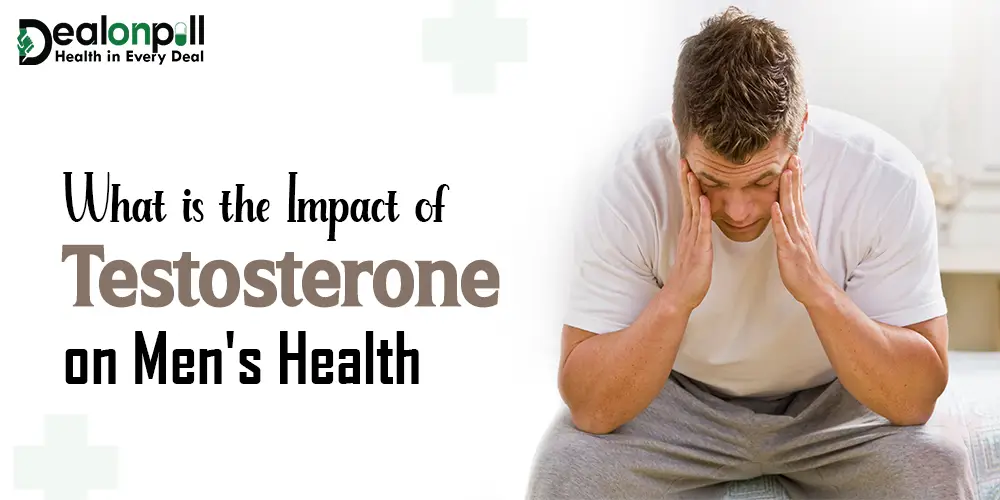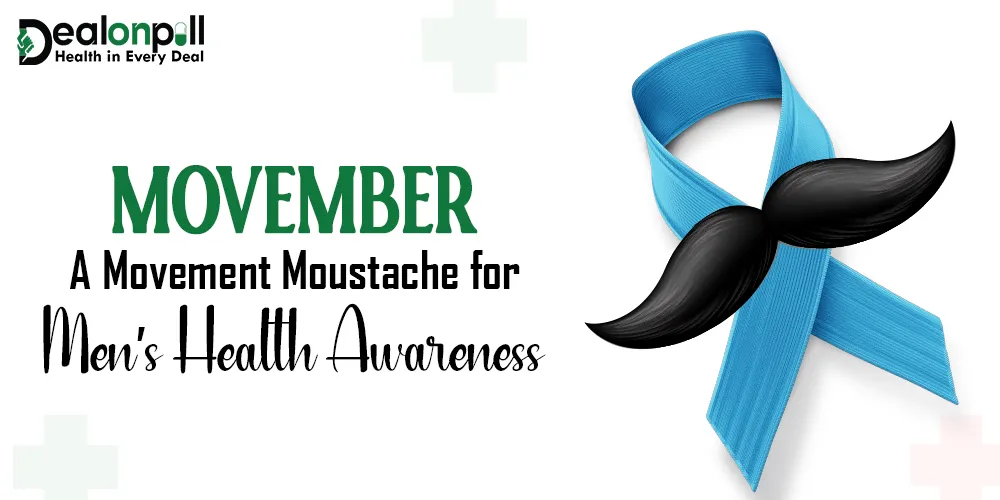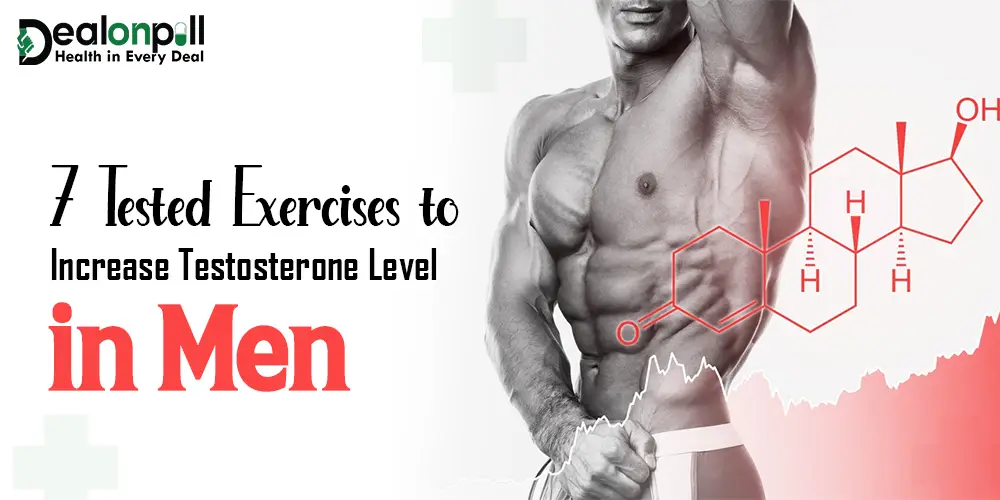Have you ever wondered if sex hormones can convert your sex life into more fun or like a barren land? Testosterone, your sex hormone, plays a vital role in men’s health. It helps in building men’s characteristics to improve sexual functioning.
This blog will cover everything from the effects of T hormone on your health to how to boost it. You will also learn about what low T levels can do to your good health.
Understanding Testosterone
Testosterone is a sex hormone and androgen that plays a crucial role in your sex life. These hormones are present in both men and women, but men have them more. Hormones act as chemical messengers, travel from one organ to another, and affect bodily processes.
When puberty hits, testosterone helps to convert all the boy’s characteristics to man’s. A man develops his genitals, grows hair, and develops masculine characteristics.
The testosterone production in men is controlled by the signal that your brain sends to the pituitary gland. It signals to produce the testosterone hormones. When the level increases, your brain handles the situation and reduces the production.
Testosterone can contribute to:
- Development of the penis and testes
- Deepening of the voice during puberty
- Appearance of facial and pubic hair starting at puberty; later in life, it may play a role in balding
- Muscle size and strength
- Bone growth and strength
- Sex drive (libido)
- Sperm production
Below, you will learn some of the effects of testosterone on your body. They affect your body, including skin, voice box, and hair.
7 Effects of Testosterone on the Body
1) Muscle Mass and Strength
Muscle mass is nothing but the amount of muscle in your body. These muscles include skeletal, smooth, and cardiac muscles. It is a primary factor that contributes to your body composition, like fat mass, bone mass, and other tissues. Muscle mass is beneficial for mobility, balance, and strength.
You must know that older people tend to get fractures quickly. It is because muscle mass decreases by 3-5% every decade with getting old.
Studies back up that testosterone increases the muscle mass in your body. In a study, the researchers gave a testosterone enanthate dose of 3 mg/week for 12 weeks, and they found an increase in muscle mass and total body potassium. The 27% rise in muscle protein resulted in improved muscle mass.
2) Bone Density
Bone density is the amount of bone mineral in your bone tissue. Lower bone density results in weak bones, which are easy to break. Your testosterone levels play a crucial role in maintaining bone density in old age. When bone mineral density (BMD) resumes, men encounter issues like osteopenia and osteoporosis.
A study shows TRT testosterone replacement therapy proved as a valuable tool for managing symptoms caused by low testosterone. It was beneficial for men experiencing low BMD.
3) Central Nervous System
The brain is a vital part of your body. It sends messages to other body organs to complete tasks. Your brain controls everything you do. In the same way, when you get sexually aroused, your brain sends messengers that help you get an erection.
Studies show that testosterone has a major impact on brain development, especially in neurological functioning, such as motor movement and memory. In a study in 2004, the researchers claimed that testosterone plays a role in protecting the central nervous system (CNS). They provide neuroprotection for brain conditions like Alzheimer’s and depression.
Testosterone also helps with certain behaviors and boosts self-esteem. Lower testosterone reduces confidence and motivation, and it affects the brain.
4) Mood and Emotional Well-being
Another effect of testosterone is on your mood and emotions. Low testosterone levels cause irritable male syndrome (IMS), which results in irritability, lethargy, and depression. High testosterone can also cause depression and hypomania.
The improved testosterone levels help with psychological well-being and provide quality life. It affects your aggression, stress, resilience, and social dynamic.
5) Libido and Sexual Function
Your sexual functioning very much depends on your testosterone levels. Sex drive, also known as libido, increases with the increase in testosterone. Not only your sex drive but testosterone also affects your emotional well-being and physical health. The mood swings that you may experience can happen due to the fluctuation in your testosterone levels.
When you get sexually excited, your brain sends messengers, called neurotransmitters, to the other body organs and your genitals. Testosterone plays a crucial role in the production of neurotransmitters, especially dopamine. High T levels lead to motivated sexual desires.
6) Reproductive System and Fertility
Testosterone helps to develop your reproductive system and enhances your fertility. At puberty, a man goes through many changes. The testicles and penis grow, and the sperm count increases. It leads to the development of fertility.
As the T levels decrease, the production of the sperm reduces. It negatively impacts your fertility and low sex drive.
7) Skin and Hair
Have you wondered what made your hair grow? Men undergo so many changes from their childhood to adulthood. Major changes come when a man enters in his puberty. Testosterone helps to develop male characters in men and female characters in women. Testosterone helps to grow hair on various body parts, including your genitals, chest, and legs.
Testosterone also helps to develop your sweat glands. Every person has a different sweat capacity, while men tend to get more sweat than women. Men who get oily skin are because of testosterone levels. It may result in acne on the face and breast enlargement in women. A high level of testosterone contributes to thicker and more resilient skin.
What Does Low Testosterone Do to a Man?
Low testosterone causes emotional issues, physical changes, and sleep problems. These problems increase with growing age as the level of T decreases. Here are four problems that low testosterone can create.
1) Sexual Dysfunction
The enhanced testosterone can improve your sex drive, but low testosterone levels can cause sexual dysfunction like ED. Low testosterone leads to a decrease in libido, making it hard to experience sexual desire and reduced performance.
The testosterone level decreases with growing age. It may lead to a reduced desire for sex, difficulty in getting an erection, and infertility. Men experience erectile dysfunction due to various reasons, low testosterone can be one of them.
The decrease in testosterone production increases the risk of various chronic conditions like type 2 diabetes, obesity, and heart disease. All of these diseases play a crucial role in causing erectile dysfunction.
You can treat it through testosterone replacement theory. It helps to increase the T levels and reverse the symptoms of low testosterone. It enhances your sexual performance and energy levels.
2) Physical Changes
Tesstoeoron being a sex hormone, the reduced level causes various physical changes. Some changes that happen in the body are:
- Increased body fat
- Decreased strength/mass of muscles
- Fragile bones
- Decreased body hair
- Swelling/tenderness in the breast tissue
- Hot flashes
- Increased fatigue
- Effects on cholesterol metabolism
3) Sleep Issues
Studies support that lower testosterone can lead to several issues in the sleep pattern, and it works visa versa. Sleep deprivation can lower the testosterone levels in men. The changes in testosterone levels result in insomnia, and testosterone replacement therapy can cause sleep apnea. It is a serious condition in which a person’s breathing repeatedly starts and stops. It disrupts the sleep process and increases the risk of other conditions like stroke.
A study in 2008 explored the link between low testosterone levels and sleep patterns in older people. The research found that lower testosterone resulted in poor sleep quality and reduced sleep. The sleep efficiency was decreased and more awakening with less deep sleep.
Low testosterone can also contribute to a decreased number of hours of sleep. However, more research is needed to strengthen the link.
4) Emotional Changes
Low testosterone also impacts your mental health, like stress and emotional changes. It leads to:
- Mood swings
- Irritability
- Stress
- Anxiety
- Depression
These symptoms are also called andropause, which is the male equivalent of menopause in women. The changes in the emotions due to the hormonal changes make it hard to live a quality life. These gradually convert into physical effects like tiredness and weight gain.
Additionally, low T also leads to sexual dysfunction. It indirectly makes you feel frustrated and irritable due to less sexual desire. Consistent fatigue ruins the mood all day and affects your mental state the most.
5 Ways to Boost Testosterone with Lifestyle Changes
1) Maintain Body Weight
With gaining weight, you gain several health issues. To avoid future problems, the best thing you can do is maintain your body weight. As the belly fat increases, the enzyme activity “aromatase” increases. It converts the testosterone in the fat cells to estrogen, resulting in low testosterone.
Make sure to maintain your weight. One drop in the BMI helps to increase your testosterone by 1 point.
2) Sleep Well
Sleep is also connected with the T levels. The better and deeper you sleep, the improved T you can have. A person sleeps a deep sleep when he goes through RMI rapid eye movement. Disturbed sleep reduces the cycle and disrupts the REM, leading to reduced T.
3) Exercise
Performing two types of exercise highly impacts your T levels. Aerobic and resistance training helps to increase your muscles and elevates your T production. These exercises increase the heart rate and prevent health conditions like cancer and heart disease. You can also participate in various outdoor sports. It increases physical activity and also provides enough sunlight to your body. It helps to improve the vitamin D levels in the body.
4) Avoid Tabacco
Smoking and excessive drinking lead to low T levels. However, studies claim that smoking can increase testosterone. But it can happen only in the short run. Consistent intake of tobacco can reverse the situation and reduce the T levels.
The reason behind, smoking not only weakens your lungs but also harms your overall body. It is also a contributing factor to sexual dysfunction. The hormone system gets fragile with the use of tobacco.
5) Eat Healthy
Eating is a crucial part of your lifestyle. Avoiding excessive caffeine, sugar, and red meat can help improve your T levels. Try to eat green and leafy vegetables. They purify the blood and help with the T production.
Additionally, eating healthy foods also prevents getting any diseases. It helps in improving overall health and sexual functioning.
Conclusion
The impact of testosterone on men’s health is profound. Beyond its importance in men’s sexual functioning, testosterone also plays a crucial role in men’s behavior, mood swings, and emotional well-being. Low T levels can lead to various health issues like fatigue, depression, and increased risk of cardiovascular diseases. By implementing the lifestyle changes, you can improve your low T level and enjoy your sex life to the fullest.
However, make sure to consult a doctor before taking any action. It will help to understand the root cause and find the perfect medicines for your problem.
You can also come to us in case of sexual dysfunction. You will find a diverse range of ED and PE medicines that will help you gain your erection and confidence back.
FAQs
Q1. What does taking testosterone do to a man?
Increased T levels help with sexual functioning. It improves the muscle mass and improves the overall strength. When you change your lifestyle or take supplements to increase T levels, your sex drive and fertility increase.
Q2. How does testosterone affect men’s behavior?
Testosterone plays a crucial role in elevating your mental state. Your behaviors change as the T levels drop. You may experience irritation, physical aggression, and anger.
Q3. What happens when you increase testosterone in men?
Men with low T levels lead various problems. Increased T levels help in many ways. It helps in building muscles, mood, and improving sex drive. Hormone production increases and results in many good things. However, excessive increases can cause the same problems.
Q4. What are the negative side effects of testosterone?
Breast swelling, headache, anxiety, increased facial or body hair growth, male-pattern baldness, increased or decreased interest in sex, numbness, or tingly feeling.




